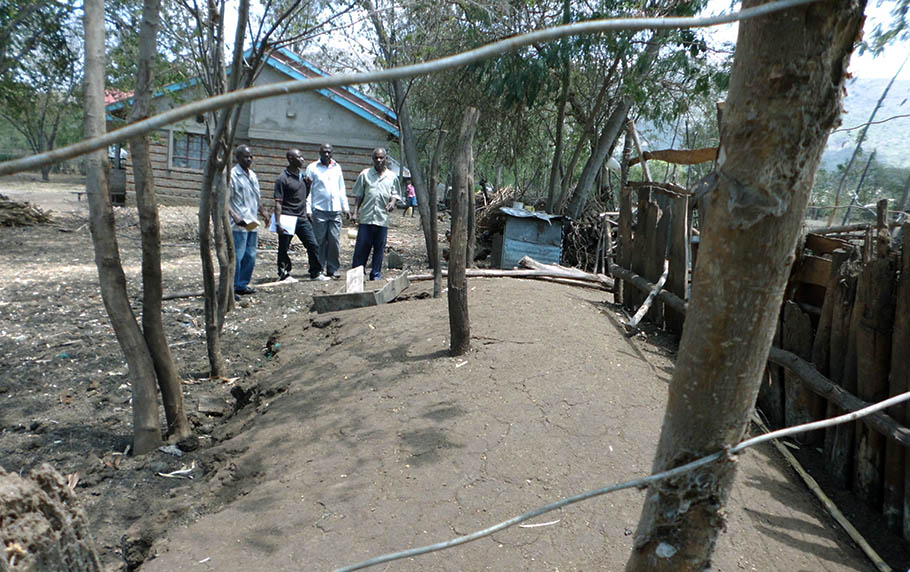Feature photo: Nuru Kenya conducts an interview with Kenya Ministry officials.
What is social mapping?
Social mapping is a process used to more accurately understand the needs in various communities. It provides a robust picture of the key stakeholders, levels of poverty, and climatic conditions in a given area. Using a variety of tools (such as interviews, surveys, observations, geospatial maps and census data), this process helps Nuru Kenya assess the potential resources, time and personnel involved in scaling to a new district.
How was the social mapping process conducted?
Under the supervision of the Impact Programs Manager, the Scout Team, comprised of a representative from Agriculture and Leadership traveled to three districts in Kenya in order to conduct a systematic review of potential scaling areas. The initial districts were selected based on a wide-range of criteria that included the percentage of those living in extreme poverty, total target population, and potential need in all four of our impact program areas.
In order to get a better understanding of the needs on the ground, the team conducted key informant interviews (KIIs) with various stakeholders and community leaders. The team designed questionnaires for the Ministries of Agriculture, Education and Health. In addition, the team also interviewed a diverse group of community leaders (including farmers, chiefs, assistant chiefs, district officers and district commissioners). These interviews were conducted in three neighboring districts and took place over the course of two months. Conducting personal and detailed interviews was critical to ascertain a more nuanced perception of the community needs. Interviewing such a wide-range of stakeholders ensures that when Nuru Kenya scales, it will scale to the district with the highest potential for impact.
Why is social mapping important for ending extreme poverty?
Two of the core components of the Nuru model are understanding and addressing the complex needs of the community and scaling our model to new areas. These are vital for us to continue to make an impact on the lives of the farmers we serve. Nuru Kenya has seen that conditions, need and target populations can vary significantly from one area to another; thus, by conducting a thorough social mapping process Nuru can ensure that we will be able to maximize our impact in a new area.
Lessons learned from the social mapping process
Paul Mogosi, Leadership Training Manager, joined the Scout Team to conduct social mapping for Nuru Kenya. This new experience provided him with valuable insights that he can apply to his future work with Nuru Kenya:
“Being a part of the social mapping team has helped me learn a lot as a leader. I’ve learned how to understand the needs of people in different communities, how to communicate with different stakeholders in different areas and how to schedule activities using a seasonal calendar. In addition, my leadership and communication skills have been sharpened through these interactions with different leaders. I am confident that this will help me improve in my role with Nuru. The results of the social mapping will help Nuru Kenya make an informed decision on where to scale based on need and this will help us have a stronger impact on those farmers currently living in extreme poverty.”
With leaders like Paul and strong processes for identifying new districts in place, the future looks bright for the Nuru Kenya team!


